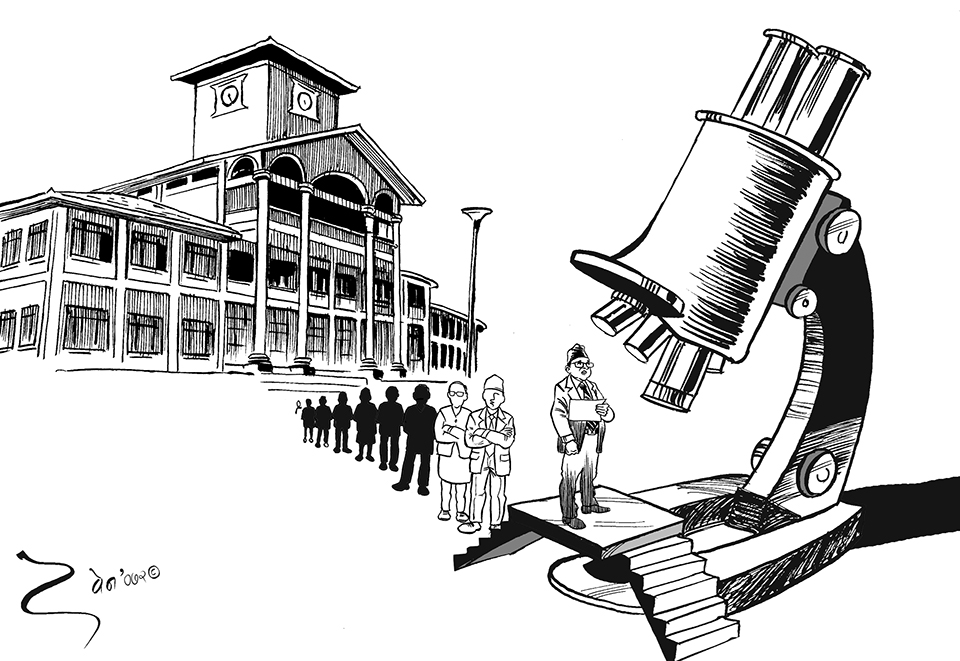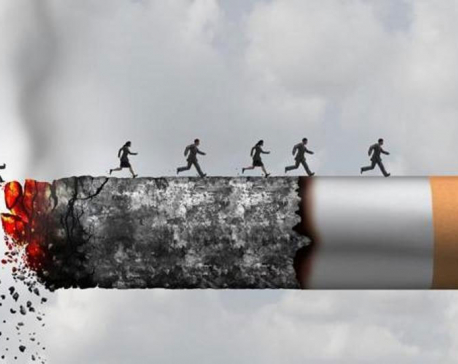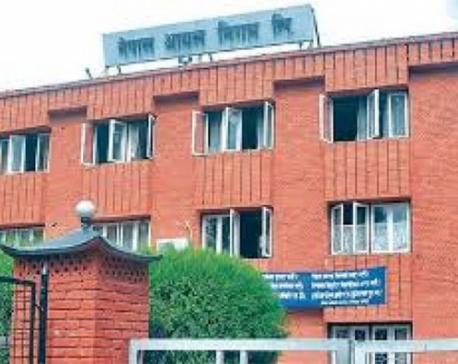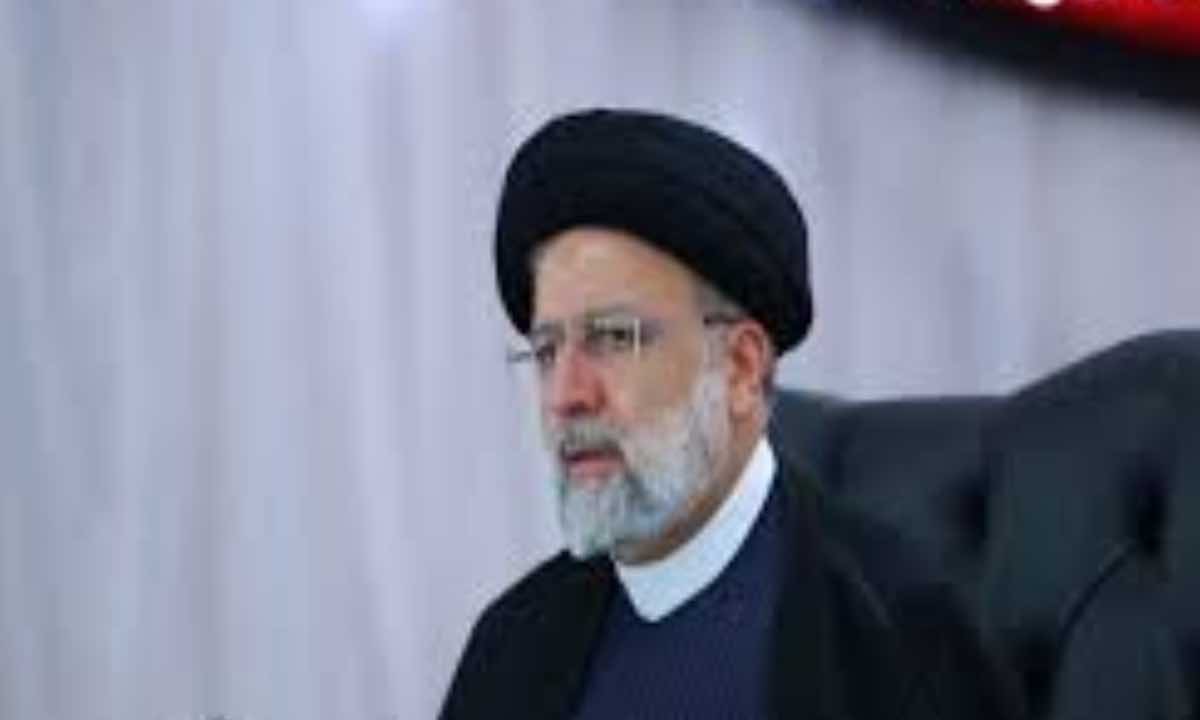
OR


Ajit Rai
Ajit Rai is a visiting faculty at Central Department of Rural Development, TU.raiajitpe@gmail.com
Serious intellectual effort made by few ideal professors is not enough to produce the force strong enough to propel intellectual engine of a university
In my previous article, I argued that Tribhuvan University is intellectually dead (“TU is dead,” March 1). Many readers including professors, researchers, former high-ranking government officials, politicians and students commented on it. Some completely disagreed with my view, others partially agreed. They averred that TU is not completely dead. Yet others completely subscribed to my ideas.
Those commentators who argued that TU is not dead did not agree with me because they honestly but wrongly believe my argument is fraught with logical flaws. I call them “logically honest commentators”. Others argued that TU is not dead not because they honestly believe so but because they believe, as Van Meter Ames did, philosophy is dynamite capable of dismantling the existing order of things. Let me call them “logically dishonest commentators.” Some of these commentators committed what logicians call “the ad hominem fallacy.” They attacked my circumstance rather than argument.
Logically honest commentators reminded me of comments made on the argument of Francis Fukuyama’s The End of History? (1989). These critics were of the view that history never ends since events never stop occurring. Their comments proved to be glib ones because what they meant by history was not what Fukuyama meant. He had used the term “history” in the sense of the ideological history not as events that occur in human society. He had used the phrase “the end of history” to refer to the fact that liberal democracy represents the last point in ideological history.
Intellectual death
Just as some commentators attacked Fukuyama’s argument without trying to understand what he meant by “history”, the logically honest commentators criticized my argument without trying to know what I meant by “intellectual death”. Since the essence of argument I made in my previous article is based on notion of “intellectual death”, it is necessary to elaborate the concept here.
First, it is important to distinguish between administrative and intellectual life of a university. Most of those who disagreed with my point thought I was alluding to the demise of the administrative life of TU. The administrative life of a university refers to activities such as appointing administrative staffs and university teachers, enrolling students, conducting exams etc—the activities that are carried out to run the university.
For me, intellectual life of a university is the movement of a broader process encompassing two sub-processes. The first sub-process refers to the process by which university teachers teach knowledge as much as it is practically possible under a particular circumstance. The second one refers to the process that leads to the production of new knowledge to the extent that is practically possible under a particular circumstance. I use the phrase “minimum critical knowledge” to refer to the amount of knowledge that is practically possible to be taught critically under a particular situation.
The result of the first sub-process is dissemination of minimum critical knowledge among students. I give the name “minimum new knowledge” to the amount of new knowledge university teachers are capable of generating under certain conditions. The result the second sub-process leads to is production of minimum new knowledge.
By movement of the broader process, I mean a condition in which that process is set in motion. When the broader process capable of leading to two results—dissemination of minimum critical knowledge and production of minimum new knowledge—is set in motion, the intellectual life of a university comes into being. If this process is yet to be set in motion, then a university is yet to be born intellectually despite its administrative existence. And, when this process stops moving, a university dies intellectually.
It is through the concerted intellectual effort of all the university teachers that this process is set in motion. Therefore, their concerted intellectual effort is the soul of broader process. Separating this soul from broader process leads to intellectual death.
The broader process that forms the intellectual life of a university is an intellectual engine of a university. The two sub-processes are the constituent parts of this intellectual engine. The concerted intellectual effort made by all the university teachers to engage in this process is the force that propels that engine. There will be a lack of force capable of propelling that intellectual engine if all the university teachers do not engage in it.
Accusations and defense
The logically honest commentators accused me of (i)being irreverent towards honest and hard-working professors, (ii) making unrealistic comparison between western academic institutions and TU, (iii) producing dangerous discourse aimed at extolling private academic institutions thereby criticizing public ones, (iv) overgeneralizing despite being critical, (v) looking at the existing condition of TU simplistically and (vi) indirectly saying that other universities in Nepal are intellectually alive.
Honestly, these comments were not logically convincing. I think, as John Maynard Keynes did, we do not understand very simple ideas when we refuse to escape from “habitual modes of thought”. In The General Theory of Employment, Interest and Money, he wrote: “The difficulty lies, not in the new ideas, but in escaping from the old ones, which ramify, for those brought up as most of us have been, into every corner of our minds”.
The first, fourth and fifth comments are derived from the observation that there are also ideal professors in TU. This observation, which I share, has nothing to do with the logical validity of my argument. As stated above, intellectual engine of a university is propelled by the force created by the concerted effort made by all university teachers to set in motion the broader process leading to dissemination of minimum critical knowledge and production of new knowledge. The serious intellectual effort made by few ideal professors is not enough to produce the force strong enough to propel intellectual engine of a university.
This means even if some ideal professors engage in teaching and research activities seriously, the intellectual engine of a university does not move due to lack of force adequate enough to propel it. In other words, a university is intellectually dead even when some ideal professors make a serious intellectual effort to disseminate minimum critical knowledge and produce minimum new knowledge. So when I say TU is dead, I do not mean all professors are remiss in their duty.
Universities differ in terms of minimum critical knowledge to be disseminated and minimum new knowledge to be generated since these minimum amounts are determined by various factors such as average intelligence, nature of faculty selection process, incentive for critical thinking, research funds etc. TU lags behind the western institutions on these fronts. My argument is not that TU is dead because its professors do not teach knowledge as much as its western counterparts do or they do not generate new knowledge as much as their western counterparts do.
TU is dead because the amount of knowledge its professors teach or disseminate is much less than “minimum critical knowledge.” The amount of knowledge its professors generate is less than “minimum new knowledge”. Therefore, my argument is not based on what one commentator calls “unrealistic comparison between TU and western academic institutions”.
As for the third accusation, my intention is not to compare private and public academic institutions in terms of effectiveness. Such intention is neither directly stated nor implied in my previous write-up. The emphasis is on the need of resurrecting TU. I am not interested in contributing to the dangerous discourse intended to hide the dark sides of private academic institutions by presenting the largest public academic institution in negative light.
The sixth comment falls outside the scope of my argument. It does not follow from my claim on TU’s intellectual demise that other universities in Nepal are intellectually alive, or intellectually dead.
The logically honest commentators of my previous article rushed headlong into glib comments without trying to understand the assumption my argument is based on. They seem to be unaware of the fundamental fact in the science of reasoning that every argument is based on a particular assumption, which is either explicitly stated or indirectly implied.
The author is a visiting faculty at Central Department of Rural Development, TU
raiajitpe@gmail.com
You May Like This

Unable to quit smoking? Here’s why it is so difficult
Scientists have identified chemical changes deep in the brain that drive nicotine addiction. This might lead to new treatments for... Read More...

Why is no one taking action against Khadka?
KATHMANDU, August 23: Executive Director of Nepal Oil Corporation, Gopal Khadka faces several accusations. The latest of such accusations is... Read More...

Why netiquette is important?
Maintaining decorum is a must, be it in your personal life or when you go online. With internet ruling our... Read More...





Just In
- Ties with Tehran
- CM Kandel requests Finance Minister Pun to put Karnali province in priority in upcoming budget
- Australia reduces TR visa age limit and duration as it implements stricter regulations for foreign students
- Govt aims to surpass Rs 10 trillion GDP mark in next five years
- Govt appoints 77 Liaison Officers for mountain climbing management for spring season
- EC decides to permit public vehicles to operate freely on day of by-election
- Fugitive arrested after 26 years
- Indian Potash Ltd secures contract to bring 30,000 tons of urea within 107 days













Leave A Comment